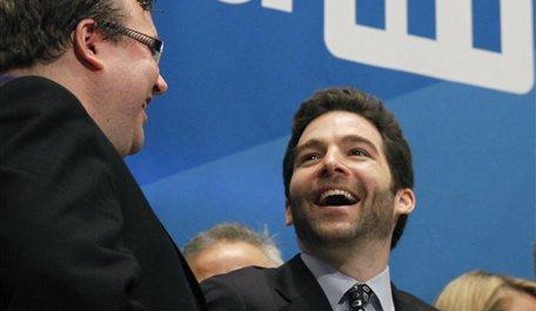Despite their bravado, Democrats in Washington apparently aren’t at all sure that the federal mandate to buy insurance will survive the scrutiny of the Supreme Court. Randy Barnett reports in the Wall Street Journal that the backers of the bill have begun calling it a tax rather than a mandate in an effort to play a rhetorical shell game with the courts and to avoid having the core of their efforts ruled unconstitutional. But will that fool the Supreme Court at all? Barnett thinks not:
A “tell” in poker is a subtle but detectable change in a player’s behavior or demeanor that reveals clues about the player’s assessment of his hand. Something similar has happened with regard to the insurance mandate at the core of last month’s health reform legislation. Congress justified its authority to enact the mandate on the grounds that it is a regulation of commerce. But as this justification came under heavy constitutional fire, the mandate’s defenders changed the argument—now claiming constitutional authority under Congress’s power to tax.
This switch in constitutional theories is a tell: Defenders of the bill lack confidence in their commerce power theory. The switch also comes too late. When the mandate’s constitutionality comes up for review as part of the state attorneys general lawsuit, the Supreme Court will not consider the penalty enforcing the mandate to be a tax because, in the provision that actually defines and imposes the mandate and penalty, Congress did not call it a tax and did not treat it as a tax.
But even if they did, the argument would still have its problems:
This shift won’t work. The Supreme Court will not allow staffers and lawyers to change the statutory cards that Congress already dealt when it adopted the Senate language.
In the 1920s, when Congress wanted to prohibit activity that was then deemed to be solely within the police power of states, it tried to penalize the activity using its tax power. In Bailey v. Drexel Furniture (1922) the Supreme Court struck down such a penalty saying, “there comes a time in the extension of the penalizing features of the so-called tax when it loses its character as such and becomes a mere penalty with the characteristics of regulation and punishment.”
Mandates always involve penalties. Whether they are called “taxes” or “fines” is immaterial to the application of the mandate or “tax” itself. In the case of the ObamaCare mandate, it doesn’t tax or penalize commerce, but the conscious decision not to engage in commerce. Even under the excessively broad interpretations of the Commerce Clause allowed by the Supreme Court over the last few decades, it will be hard for even the liberal justices to agree to that as part of the Constitution. That interpretation would literally mean that the government could dictate any and all commerce choices of American citizens, including the choice not to buy anything.
If nothing else, it shows that the backers of ObamaCare have a lot less confidence in the “Good and Welfare” clause than they have argued — and for good reason, even apart from the fact that it doesn’t exist.








Join the conversation as a VIP Member